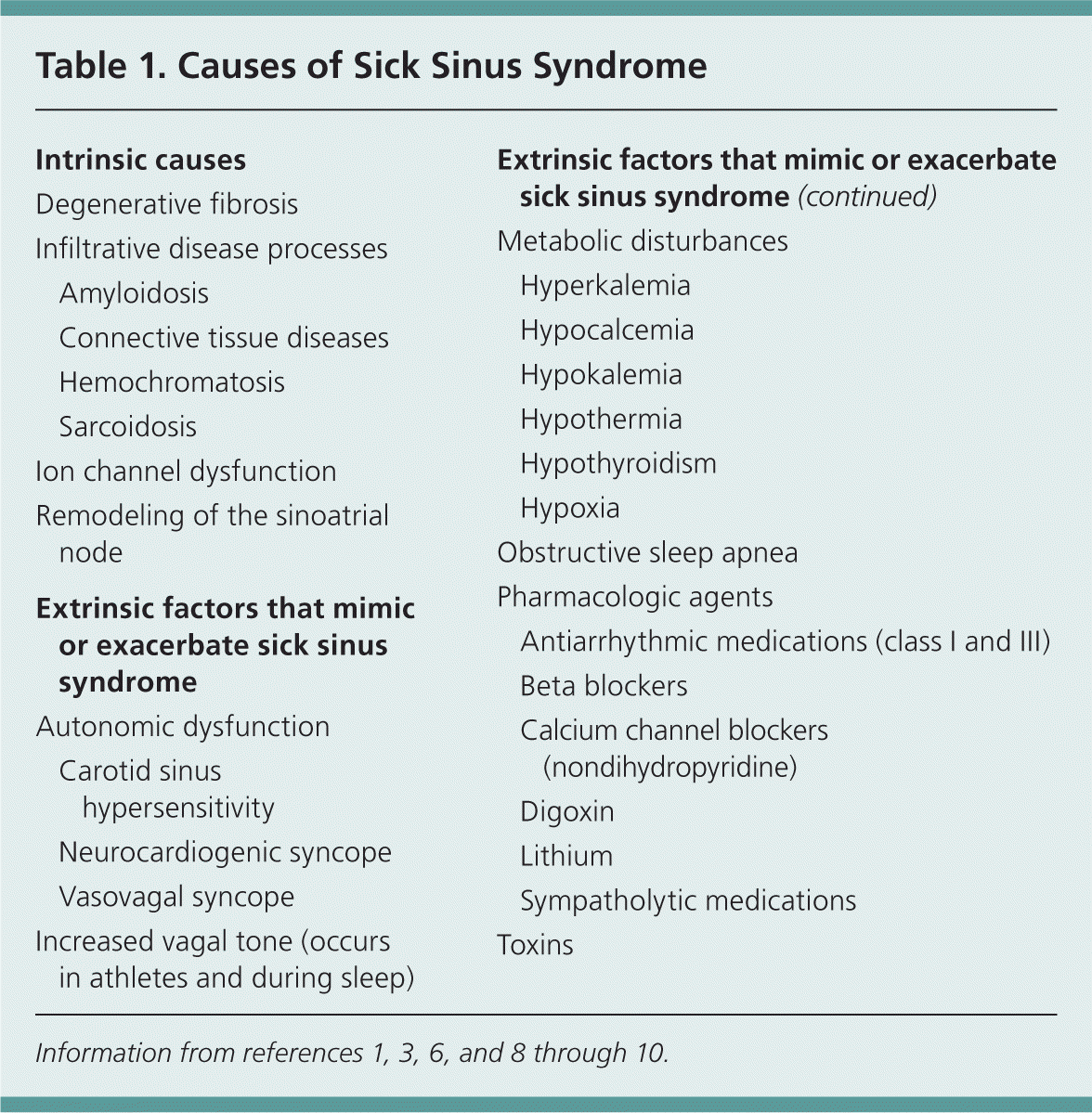
Symptoms associated with sick sinus syndrome may be aggravated by digoxin, verapamil, beta-blockers, sympatholytic agents such as clonidine and methyldopa, and anti-arrhythmic agents.Other: digestive disturbances, dizziness, errors in judgment, facial flushing, fatigue, oliguria.caution in patients with sick sinus syndrome and other supraventricular. Cardiovascular system: angina, arterial thromboemboli, cerebrovascular accident, congestive heart failure (dyspnoea), palpitations. Disease are older people and the possible consequences of a fall are more likely.Central nervous system: dementia, irritability, lethargy, light-headedness, confusion, memory loss, nocturnal wakefulness, syncope.Presentation may be with fatigue, dizziness, palpitations, and syncope or presyncope.Your doctor must rely on tests that measure the function of your. Patients are often asymptomatic, or have subtle or nonspecific symptoms, such as fatigue. You may have no symptoms or family history of heart disease.At least 50% of people with sick sinus syndrome develop alternating bradycardia and tachycardia, also known as tachy-brady syndrome.Abnormalities in sick sinus syndrome include episodes of sinus bradycardia, sinus arrest or exit block, combinations of sinoatrial and atrioventricular nodal conduction disturbances, and atrial tachyarrhythmias.The average age of a person with sick sinus syndrome is 68 years and it develops in 1 in 600 patients with cardiac disease aged over 65 years. Sick sinus syndrome is most common in the elderly, but can occur in all ages.

Paediatric causes include congenital abnormalities and sinoatrial nodal artery deficiency. Sleep apnoea may be a contributing factor by causing reduced cardiac oxygenation. Drugs - eg, digoxin, calcium-channel blockers, beta-blockers, sympatholytic agents, anti-arrhythmic drugs.Hyperkalaemia, hypoxia, hypothermia, hypothyroidism, hyperthyroidism.Cardiomyopathies: ischaemia, myocardial infarction, myocarditis, pericarditis, rheumatic heart disease, surgical injury, arteritis.

Friedreich's ataxia, muscular dystrophy.



 0 kommentar(er)
0 kommentar(er)
